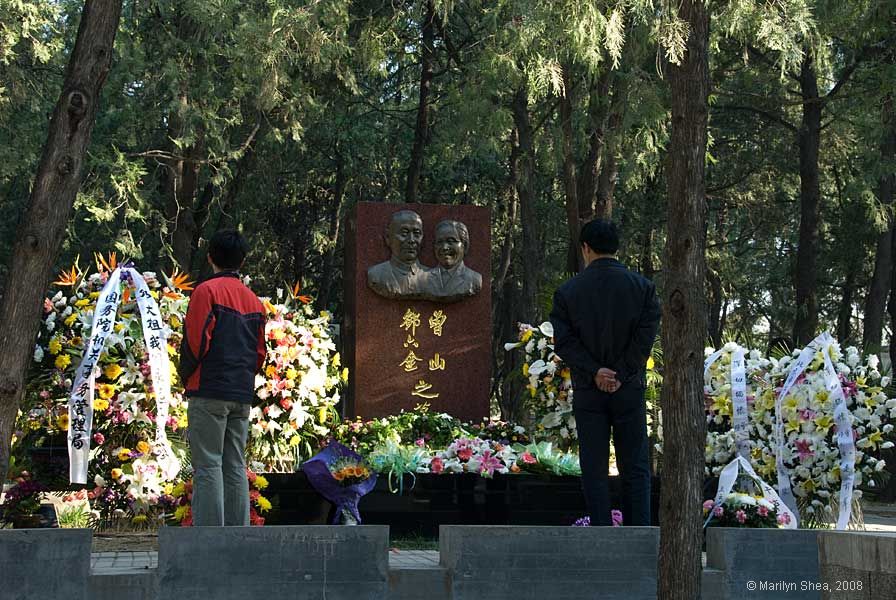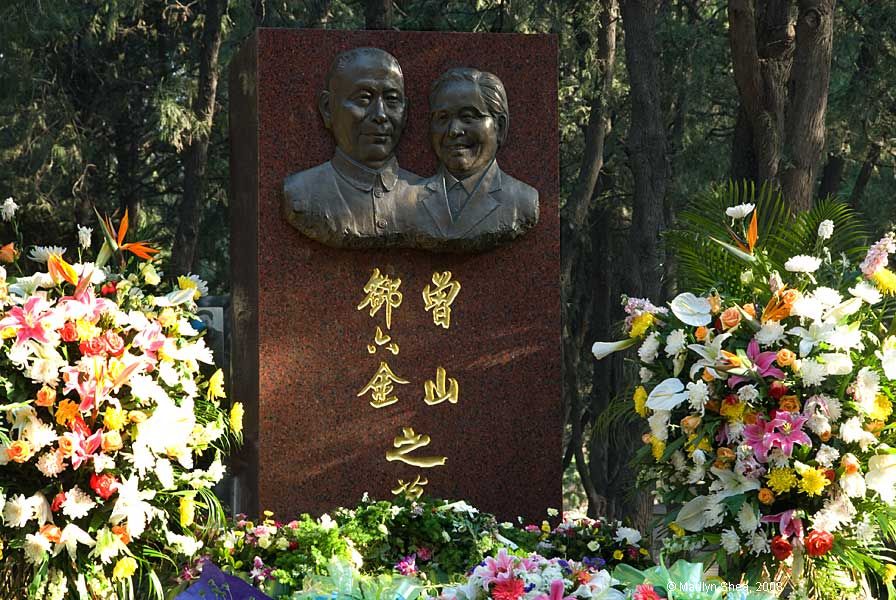 |
| Deng Liujin 邓六金 (1911--2003) was born in a poor village in the mountains of Fujian province. She was one of six children, five girls and one boy. Her parents sold Deng Liujin and three of her sisters to other families when they were newborns. There wasn't a choice, they couldn't feed them. They were tenant farmers and the landlord left them little.
Her new parents were older and had no children. She began to work with her new father at the age of six. He was a barber and traveled from place to place. She carried the equipment. Eventually he taught her the trade. She seems to have known her birth parents. They lived in another village and her birth father also earned a little extra by traveling from place to place selling sundries. Perhaps he checked on his daughters in his travels. Life wasn't much better with her new parents. During one period they rented a small piece of land to grow rice. The landlord took so much of the rice that they only had enough to eat themselves. They only had meat once a year at Spring Festival. They saved for it all year long. One year, the landlord's bullies burst into the house and took their Spring Festival food right off the table to pay "debts". She joined the Red Army in 1929 and the Communist Party in 1931. When the army fled north she was one of just 27 women who went with it. She met Zeng Shan at the end of the Long March in 1937 and married him in 1938. In 1939 she gave birth to the first of five children. In 1948 Deng Liuqin began a nursery school for the children of the party leaders in Shandong. In 1949 the school was moved to Shanghai and expanded from over 100 to about 300 students. Shanghai was the power base of the Communist Party at the time. In 1953, the family relocated to Beijing where Deng held a number of posts in the CCP ranging from the Finance and Economic Committee to the State Council Business Administrative Bureau. She retired in 1982 and became active in the Women's Federation and various committees and organizations focused on children and youth. Zeng Shan 曾山 (1904 - 1972) was an early supporter of Mao Zedong in the Communist Party. In 1931 he served Mao by orchestrating the purge of the Anti-Bolshevik (AB Corps) faction and strengthening Mao's position. Zeng Shan did not go on the Long March, but stayed behind as a military commander of a small force. He went to Yan'an at the end of the March where he assumed administrative duties and met Deng Liuqin. During the Anti-Japanese War, Mao sent him to negotiate with the Japanese to convince them to focus their attacks on the Guomindang and leave Mao's forces alone. Following the war Zeng was briefly vice-Mayor of Shanghai. The family relocated to Beijing where Zeng was appointed to various posts ending with his position as Minister of Internal Affairs from 1960 to 1969. During the Cultural Revolution he was attacked for his dealings with the Japanese, but Zhou Enlai intervened on his behalf. He made it clear that Zeng had been representing the CCP under orders. Three of their children hold the rank of Major General, one at the military academy, one in the Air Force, and the daughter in the headquarters of the PLA. The eldest son, Zeng Qinghong 曾庆红 , was Vice-President of the People's Republic of China from 2003 to 2008. |
 |
http://hua.umf.maine.edu/China/Babaoshan/index.html
Last
update: July 2009
© Marilyn Shea, 2009